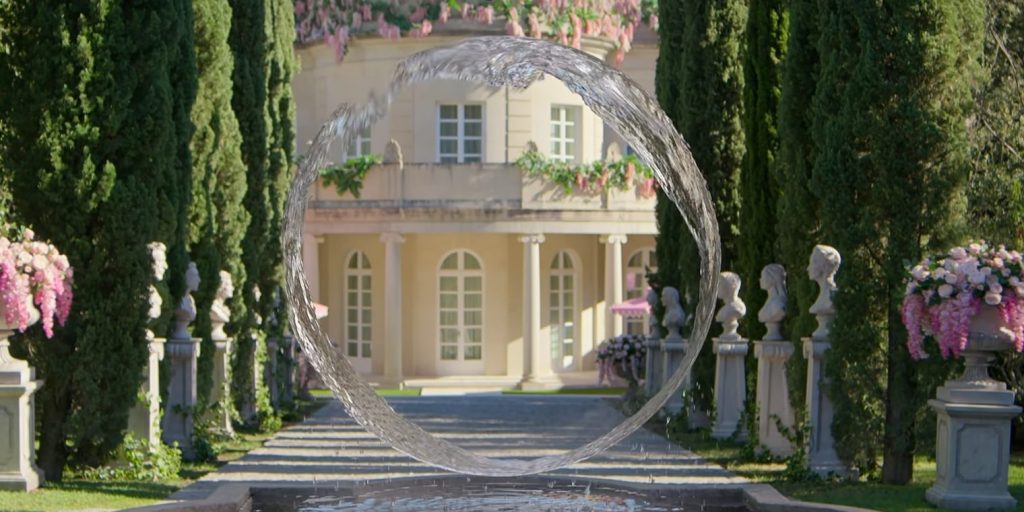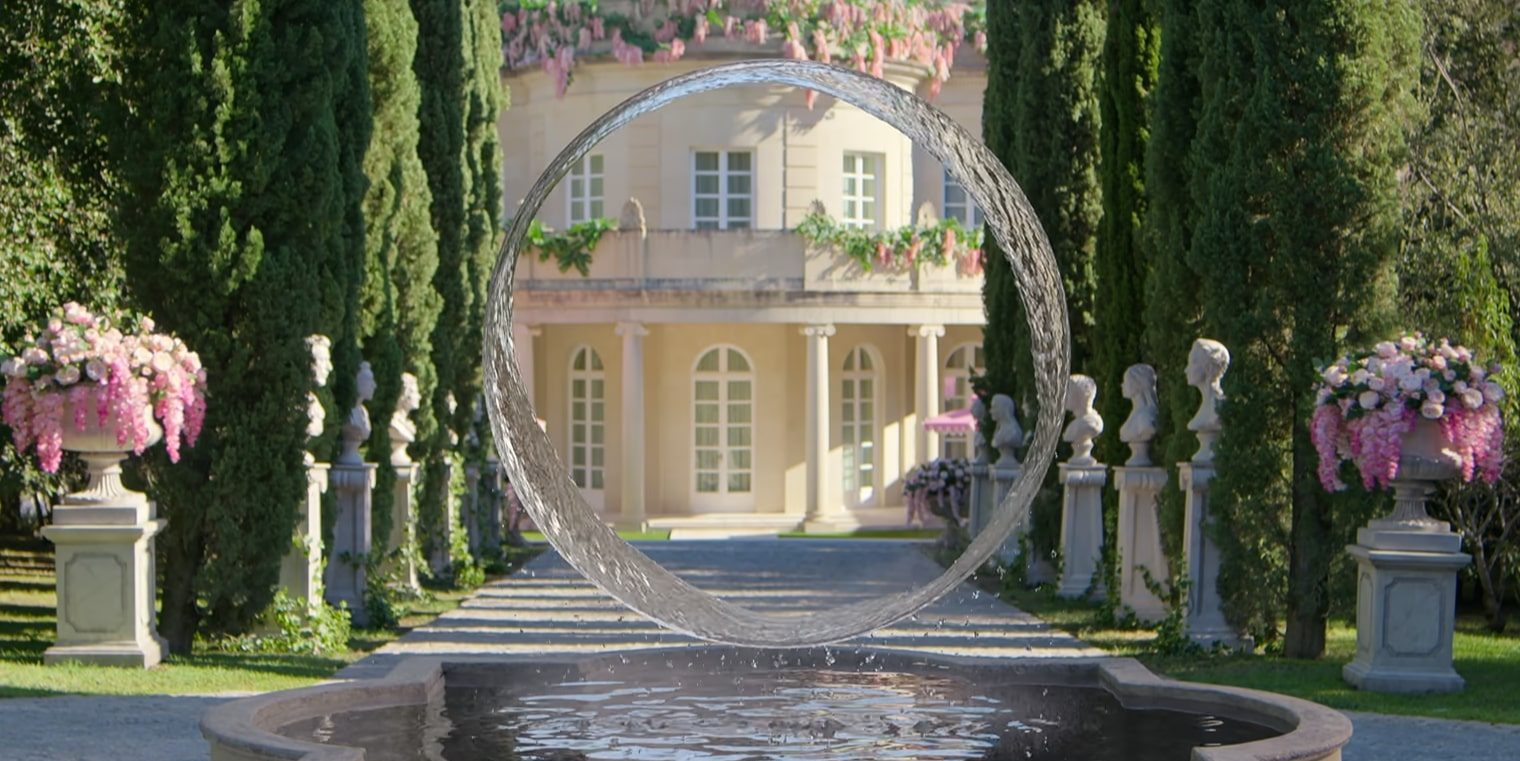The British dark comedy show, ‘Kaos,’ delves into myths, prophecies, and legends as the gods of Olympus, led by Zeus, wrestle for their survival after bad omens start materializing. Following the appearance of a wrinkle on Zeus’ forehead, the king of the gods loses his mind, fearing that an old prophecy about the end of his reign is finally coming to fruition. He subsequently hails the aid of his friend, Prometheus, to wriggle out of his precarious situation as his mind is filled with anxiety and worry. Things worsen when he discovers that the Meander, a garden ornament in his palatial residence on Mount Olympus, is showing signs of weariness, which bodes ill things for his future. SPOILERS AHEAD.
The Meander is the Name For an Ancient Greek Symbol
The Meander is a structure in Zeus’ Olympian garden that resembles a ring of clear water hovering a foot or so above the ground. It is an ethereal creation fueled by the magic of the gods and Zeus’ dominance. However, in Ancient Greece, the Meander was a symbol of infinity or the unending nature of things. It was often used as a decorative symbol in frescoes, temples, and buildings and had a connection with the unbroken flow of human life through reproduction. The word Meander itself is derived from the winding Meander River in Asia Minor, which is in present-day Turkey. For most ancient people, the symbol personified their interrelation with their past, present, and future through the chain of continued human existence.

In the show, the Meander has a purpose beyond its decorative and token aspects. In the event that Zeus’ power starts waning and his rule becomes lax, the Meander in his garden shows glitches in its otherwise perfect circular motion. As the king of the gods has reigned over mortals and immortals alike for centuries on end, his dominance is captured in the infinite flow of the Meander in his garden. Therefore, its well-being is directly associated with the strength of Zeus’ domain and how well its affairs are in order. Should anything go astray, the Meander would subsequently show blips and errors in its motion. While Zeus’ powers may be unlimited, even he is insecure about his rule coming to an end. Thus, as long as the Meander works perfectly, he can rest easy knowing everything is fine.
The Meander in Zeus’ Garden Starts Behaving Erratically
At the season’s beginning, a relaxed and happy Zeus is excited about his Olympia Day celebrations in Heraklion. However, his good mood is ruptured when he discovers abnormalities in the Meander’s flow. His wife, Hera, calms those doubts and tells him to relax as no such thing is possible. Unfortunately, the king of the gods cannot get it out of his mind. While the others believe that Zeus is growing increasingly paranoid, he is, in fact, correct about the Meander showing erratic signs. The circular ring moves jaggedly when no one is watching, highlighting that dangers are afoot for the god of the sky. It also plays into the seminal prophecy at the heart of the narrative, which states that the Olympian family’s fall starts with a line appearing, which could mean the line on the Meander.

The gods of Olympus are immortals who are not dictated by the same rules as mortals. They are freed from the burden of death and can enjoy life without any break in its flow. However, it also means they have much to lose should anything go wrong. As such, the start of the prophecy and a line appearing on the Meander may be petty developments, but owing to Zeus’ deep lying inadequacies about his fall from grace, he is deeply concerned that something terrible is around the corner at all times. The Meander is so profoundly linked to the gods that they even consume the water it provides. It could be an analogy for Ambrosia, a sacred food that the Greek gods specifically consumed. Later in the story, a desperate and vindictive Zeus delivers rationed bottles of Meander water to his fellow Olympians as a way to punish them.
His act of withholding the water from them showcases his absolute authority over all his subjects, whether gods or mortals. As the top dog among all divine beings, Zeus surrounds himself with all manner of excess, including the Meander, which is the crowning jewel of his Olympian estate. It may have more profound implications for his kingdom, but it also speaks to his arrogance and ego to display it around the house as a decorative showpiece. At the end of the season, the Meander collapses when Prometheus escapes his chains, and Zeus loses his powers. Therefore, it could mean the end of the king of the gods and his cruel dominion over all living things, signifying that the circle is finally broken – both literally and figuratively.
Read More: Kaos: Does Dennis the Cat Die?


You must be logged in to post a comment.